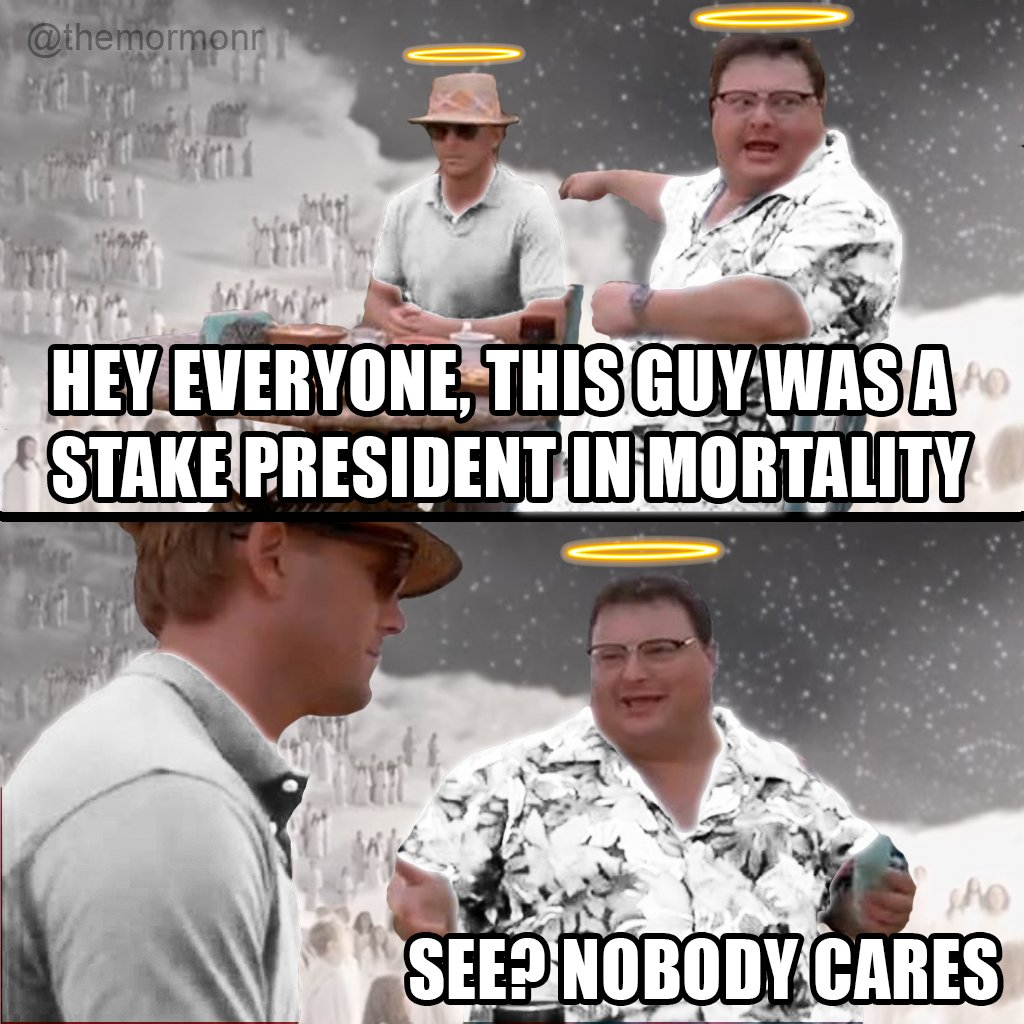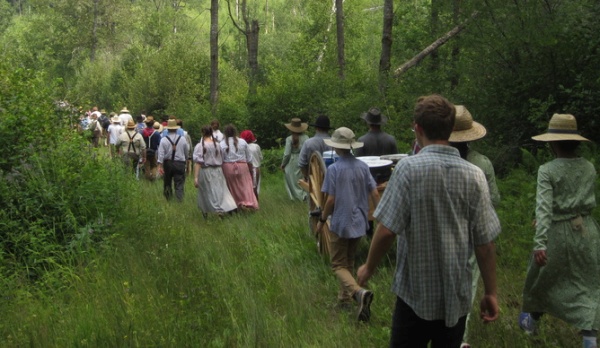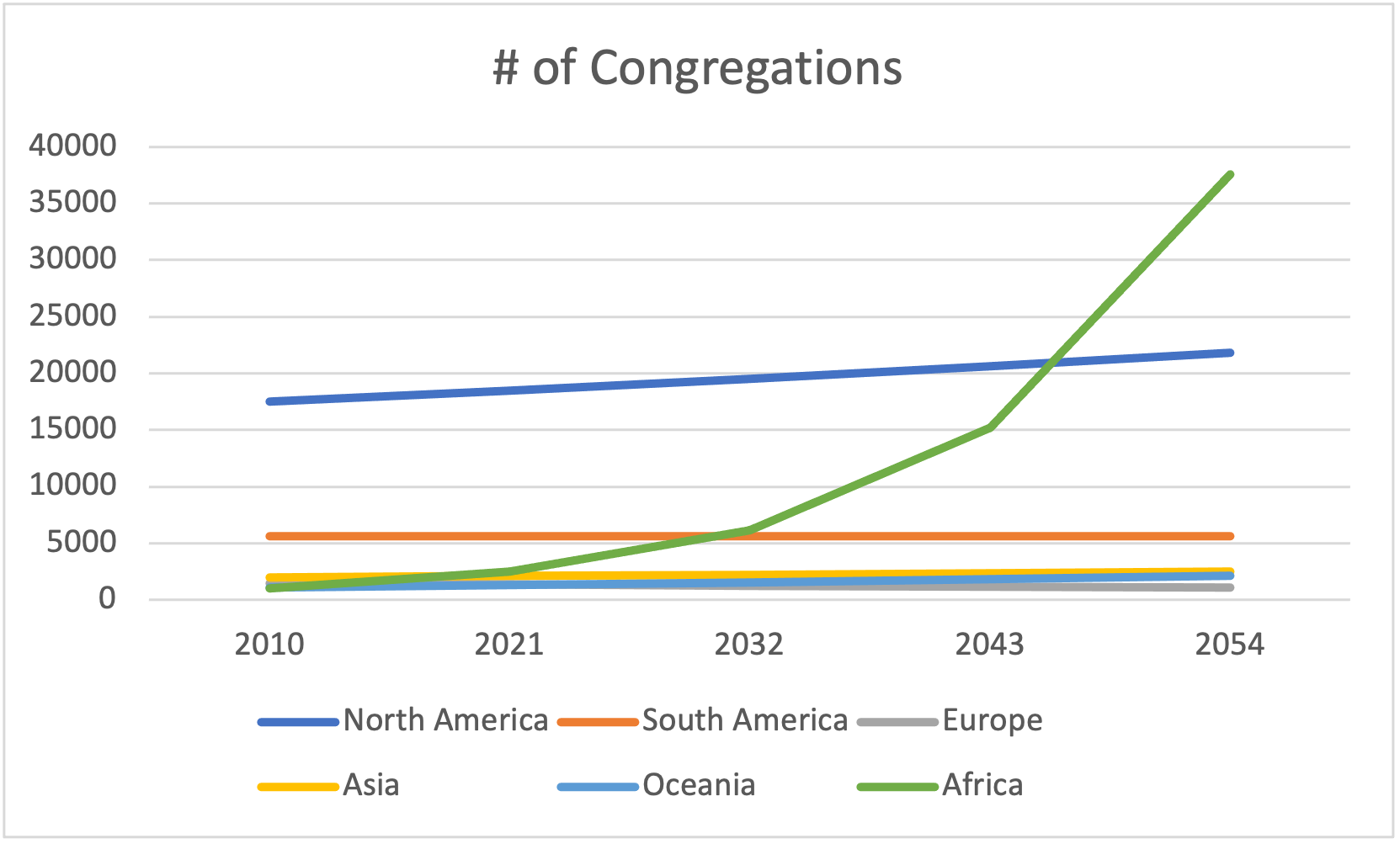-
•
•
5 responses
Tomorrow is Sunday, June 19, which is celebrated as Juneteenth National Independence Day in memory of the day that the Emancipation Proclamation began to be enforced in Galveston, Texas by the Union Army (19 June 1865). In Utah, this also doubles as the anniversary of the day that Abraham Lincoln signed a bill into law that banned slavery in United States territories (19 June 1862), ending slavery in Utah Territory: CHAP. CXI.–An Act to secure Freedom to all Persons within the Territories of the United States. Be it enacted by the Senate and House of Representatives of the United States of… Read More
-
•
•
3 responses
I apologize for the long gap between my last post and this one. My husband is one of those *religious scholars*, and he supervises an archaeological dig in Galilee and just had to go back after two years’ Covid hiatus. This has kept me busy at home; too busy to write, but has still given me time to think. I’ve been trying to decide the best way to end this series, but it’s been hard to know how to do it. Endings and beginnings are often the hardest, after all. There is no conceivable way that any amount of writing… Read More
-
•
•
10 responses
While some in the Church fear or are anxious around religious doubt, I feel that in some circles the pendulum has swung too far the other way, so I thought I’d directly address what I personally consider to be some takes that I think are problematic. Periods of doubt are required to develop a stronger faith. Yes, doubt can strengthen faith once you come out the other side, but this isn’t strictly required. For me personally the aspects of the gospel that viscerally feel right remain the least doubt-ridden parts of my testimony. Of course, some beliefs may be affected… Read More
-
•
•
10 responses

The state of Utah is looking into creating a new flag. I was interested, so looked into best practices for flag making (vexillology) and found a handy guide from the North American Vexillological Association that suggested five basic principles of flag design: Keep it simple (the flag should be so simple that a child can draw it from memory) Use meaningful symbolism (the flag’s images, colors, or patterns should relate to what it symbolizes) Use 2-3 basic colors (limit the number of colors on the flag to three, which contrast well and come from the standard color set) No lettering… Read More
-
•
•
36 responses
Anecdotally, it has seemed to me for a while that Latter-day Saint families in particular tend to have a lot of gay family members. I don’t know of any hard data that has done any kind of comparison-of-means by religion (the sample size would have to be huge, since we’re dealing with a minority within a minority), and I generally assume this perception of mine has to do with the fact that I’m a Latter-day Saint that has done research on sexuality issues, and hammers and nails and all that. However, lately I’ve wondered if we could theoretically expect more… Read More
-
•
•
2 responses
When I was a child, I heard of Susan B. Anthony, Susa Young Gates, and John Sousa, but had trouble separating them out in my mind because of similarities in name. The result was that I thought Brigham Young had this rockstar daughter who was featured on a silver dollar for her women’s rights activism and who wrote the “Stars and Stripes Forever” and other popular marches. Well, obviously that’s not quite true to reality, though at the same time, aspects of it aren’t that far from the truth – Susa Young Gates was Brigham Young’s daughter, was highly involved… Read More
-
•
•
27 responses

In one of my recent posts I talked about the connection between wealth and Church leadership; one of the issues that naturally rose to the surface in the comments was the connection between Church leadership and one’s standing before God. On this issue there’s a somewhat uncomfortable tension between different truisms in Church teachings and culture. On one hand, we generally recognize that righteousness isn’t irrelevant to church position. All things being equal, the higher up one goes the more righteous the individual is, to put it bluntly. I’d expect more from an apostle getting cut off in traffic… Read More
-
•
•
6 responses
At the Mormon History Association conference this weekend, Anthony Sweat shared a funny story during his presentation on “A White Jesus and a Global Church.” Apparently there were some individuals who were visiting BYU from Saudi Arabia to observe teaching at the institution. During a class that Dr. Sweat was teaching, the Saudis saw a print of the famous Del Parson Jesus the Christ painting. They asked through an interpreter who the painting was depicting. Dr. Sweat explained that it was Jesus, and the Saudis busted up laughing and started chattering. Confused, Sweat asked the interpreter what they were saying… Read More
-
•
•
8 responses
The subject of education that does not pay financially is a sensitive one for me. Thankfully, my graduate training equipped me with enough marketable skills that I’m fine, but I’m close enough to people in other fields (sometimes adjacent to mine) that I’ve seen it not work out, and it can get very ugly. Somebody puts in years of their life, and sometimes takes out student loans, to only at the end find out that 1) the chance of you getting that R1 tenure track position for some fields is literally similar to your chance of making it in the… Read More
-
•
•
2 responses
Emma Smith isn’t just an elect lady, she’s a complicated one too. Jenny Reeder, author of First: The Life and Faith of Emma Hale Smith, recently discussed reasons for why that is the case in an interview with From the Desk. Alternatively vilified or considered an hero of the Restoration in the Church of Jesus Christ of Latter-day Saints, Reeder wanted people to know first and foremost that Emma was a real person, complete with flaws and a very complicated relationship with the Church. One of the more difficult aspects for members of the Church today to consider was Emma’s complicated… Read More
-
•
•
2 responses

I spent most of 2021 writing a series of posts to follow along with the “Come, Follow Me” curriculum for the Doctrine and Covenants. I had a few reasons for doing this. First and foremost, I wanted to challenge myself to look more closely at the scriptures, to really read and think about what the Doctrine and Covenants says and the context in which it says it to deepen my personal understanding. Studying the Joseph Smith Papers resources around the earliest versions of the revelations and then writing about an idea or thought that caught my attention is an approach… Read More
-
•
•
15 responses
The irony of the King Follett Discourse is that it is the most famous discourse given by the Prophet Joseph Smith, but still rarely quoted in general conference or other official publications of the Church of Jesus Christ of Latter-day Saints. In a recent From the Desk interview, James Falcouner discussed some of the reasons why that may be. What follows here is a copost (a shorter post with excerpts and some commentary). In the interview, James Falcouner explained what the sermon was: The King Follett Discourse is a sermon delivered in April of 1844 by Joseph Smith, during a… Read More
-
•
•
44 responses
An uncomfortable apparent pattern in the US church is that Church leaders tend to be wealthier than average. I say apparent, since I don’t have any numbers, but this pattern is stark and widespread enough anecdotally that I’m going to go ahead and assume it’s true for the purposes of this post. Assuming this is the case, why is it? I can think of several reasons people bring up, some of which are more ingrained in church culture than others. 1. Prosperity Gospel Hypothesis According to this model, since God blesses righteous people temporally, then wealth is seen as a… Read More
-
•
•
23 responses

I recently finished a review of the April 2022 general conference, and one of the talks that stood out to me most was Reyna Aburto’s talk, “We Are The Church of Jesus Christ of Latter-day Saints”. I love the vision she articulates of feeling more ownership within the Church—that it isn’t just the institution—with its hierarchy of leaders and physical buildings—but mostly the members who are the Church. In the talk, she explains this as follows: From the beginning, God has sought to gather and organize His children “to bring to pass [our] immortality and eternal life.” With that purpose in mind,… Read More
-
•
•
5 responses
In a culture that is often male-centric, it can sometimes be easy to overlook women in the scriptures. While very few are mentioned by name in the Book of Mormon or the Doctrine and Covenants, the Bible has many women who are mentioned by name and featured in the stories therein. In a recent From the Desk interview, Camille Fronk Olson discussed some of what she has learned about the women of the Old Testament over years of studying, teaching, and writing about them. What follows here is a copost (a shorter post with done excerpts and commentary). I learned… Read More
-
•
•
6 responses
In the Latter-day Saint community the renowned gospel scholar has traditionally enjoyed a lot of social esteem. Much of what I’d say here I’ve already said previously, but to summarize: our attention is being fractured into a million pieces, making it hard for any one figure to get more than a fraction of the attention space. The days of a Hugh Nibley or other figure that could command monolithic respect and acknowledgment are gone. I’m posting on the bloggernacle, which I know makes me a fogey, as the kids these days are posting on Twitter and Tik Tok (or so… Read More
-
•
•
13 responses
We are introduced to the concept of “chosen people” almost as soon as the bible opens. Though the earth is covered with the children of God there is one line (Isaac and Jacob’s) of one family (Sarah and Abraham’s) that is chosen to do a specific work for God. They are not chosen for their strength or prowess. They are landless nomads, and not by choice. They lie to survive, are often chased from place to place, have to deal and negotiate to even have a place to bury their dead, and suffer from extreme family dysfunction. By no means… Read More
-
•
•
I’ve heard it said before that Leroy Anderson was America’s best-known forgotten composer. It could likewise be said that George D. Watt is Mormonism’s best-known forgotten reporter. In a recent interview at From the Desk, Kurt Manwaring discussed why Watt is important and the recent publication of his 1851 journal with LaJean Carruth and Ronald G. Watt. What follows here is a copost to the full interview (a shorter discussion with excerpts). In the interview, Ronald G. Watt (a former archivist for the Latter-day Saint Church Historical Department and George’s great grandson) explained that: George D. Watt was born in… Read More
-
•
•
22 responses
The Church of Jesus Christ of Latter-day Saints is somewhat unique in that we don’t have a paid or professionally trained clergy. Nonetheless, there are Latter-day Saints who still pursue high education degrees in fields normally pursued by clergy trainees such as divinity, biblical studies, ancient languages, or religious studies (hereafter, for the purposes of this post, all of these are “religious studies,” although I know this is formally its own field). This is a multi-part series on different facets of this phenomenon. Because they receive academic training in religion-themed areas, there is an opportunity for those with graduate training… Read More
-
•
•
38 responses
Bruce R. McConkie stands in an interesting place in the history of the Church. For some, he holds a place in the upper echelons of a pantheon of Latter-day Saint thinkers and writers who have shaped, advocated, and defended the doctrines of the Church of Jesus Christ of Latter-day Saints. For others, he is seen as an example of anti-intellectualism who mingled the doctrines of the Church with fundamentalist Protestant beliefs and outlooks. Regardless of where one stands, mention of Elder McConkie is likely to lead to a strong reaction when it comes to discussing Church history and beliefs. In… Read More
-
•
•
5 responses
The Gospel of Mark really focuses, more than any other gospel, on the human experience of Jesus. The reader sees him experience a whole gamut of emotions, particularly negative emotions, like sorrow, anger, frustration, and fear. I am deeply moved by Mark’s telling of Jesus at Gethsemane and his death on the cross. The author of Mark, more than any other gospel author, elaborates on the disciples’ abandonment of Jesus upon his arrest. Only a few hours previously the disciples swore to Christ they would leave behind everything to follow him, only to, at Gethsemane, while he is still reeling… Read More
-
•
•
37 responses
In progressive discourse, the person (generally either gay or female) who challenges conservative religious sexual strictures is seen as a courageous trailblazer. However, as liberal Mormonism generally tracks the norms and values of progressivism generally, it too inherits the ambivalence of mainstream progressivism towards pornography. This is all anecdotal on my end, but it does seem that many progressive Latter-day Saints (hereafter “ProgMos” for easier reference), particularly the female ones, who bristle at a single woman being told by the Church to keep a lid on their sexual desires, or the gay returned missionary being told to be celibate, are… Read More
-
•
•
One response
What is the Kingdom of God? If it were a political entity, how would it be organized? What sort of charter would it have? In a recent interview with Kurt Manwaring at From the Desk, Nathan Oman discussed an early effort to think through these types of questions in the Church of Jesus Christ of Latter-day Saints known as the Council of Fifty. What follows here is a copost to the full interview, which is available here. Believing that the Last Days were at hand, “Latter-day Saints expected secular governments to fail and that religious community would form the nucleus… Read More
-
•
•
13 responses
A popular joke that I have heard before from both Latter-day Saints and Catholics (with roles reversed, depending on who’s telling it) goes that the pope’s secretary enters his office one day and tells the pope: “I have good news and bad news.” “Well, what’s the good news?” the pope asked. “We just got a phone call—the Parousia is happening and Jesus Christ is on the line.” “That’s wonderful! What bad news could there be with that?” “He’s calling from Salt Lake City.” ***** In the Church of Jesus Christ of Latter-day Saints, we focus a lot of on following… Read More
-
•
•
5 responses
I suspect a fear among some conservative Latter-day Saints is that a blockbuster, widely viewed movie will come around that presses on uncomfortable pressure points in a sophisticated way, and the 1-3 things that people know about the Church offhand will include whatever seeped into the public consciousness because of said blockbuster film. Similarly, a hope of the antagonist community is that said blockbuster film will gain a lot of traction and everybody will at last know the Truth about the Church, painting it into a corner. Either way, the first two episodes of the new Hulu miniseries Under the… Read More
-
•
•
5 responses
Like US exporters eyeing a potential 1.4 billion person market, the Church entering China is one of those white whales for hopeful, growth-minded Latter-day Saints (except with the everlasting gospel of the living God instead of widgets, but you get what I mean). Every so often (sometimes rather sophisticated) rumors will spread about how China is in the process of opening up and the MTC is revving up to train missionaries in Mandarin full speed. There have been enough of these rumors that hopefully people have learned to take them with a grain of salt. However, on a deeper level… Read More
-
•
•
3 responses

One nice thing about reading the Old Testament and the Book of Mormon together is that it lets us expand our mental geography of Zion into a full cartographic plane. Read More


